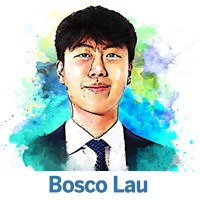Hosting a major sporting event can act as a powerful catalyst for social cohesion and regional integration. In that sense, the ongoing 15th National Games co-hosted by three regions —Guangdong, Hong Kong and Macao — for the first time is likely to boost the development of and collaboration within the Guangdong-Hong Kong-Macao Greater Bay Area.

 That the three regions worked together — tapping into the strength of each — to organize the National Games will foster a shared identity and mutual understanding among the Greater Bay Area’s partner cities, and thus strengthen the ever-growing bond between the three regions.
That the three regions worked together — tapping into the strength of each — to organize the National Games will foster a shared identity and mutual understanding among the Greater Bay Area’s partner cities, and thus strengthen the ever-growing bond between the three regions.
Through the universal language of sports, the Games will fortify the collective spirit of people in the Greater Bay Area. The most tangible layer of collaboration is witnessed in the logistics for the Games. Long before the opening ceremony, a new paradigm of cooperation had already been forged between the three regions. Administrative bodies from Guangdong province, Hong Kong, and Macao have been coordinating their respective operations to facilitate a seamless, cross-border event.
The planning committee faced the complex task of harmonizing the entire event, including security protocols, customs procedures, transportation logistics and environmental standards. For example, the creation of an integrated transport network composed of high-speed rail, roads, and ferries not only created convenience for sports fans but also contributed to the realization of a “one-hour living circle”, which efficiently connects cross-border communities, making the Greater Bay Area a physically integrated region.
Leveraging Hong Kong’s world-class expertise in hosting international events, Macao’s distinctive cultural venues, and Guangdong’s extensive sporting infrastructure, this strategic allocation of tasks underscores and puts the unique strengths of all three regions into full use. This necessity-driven collaboration in transportation, logistics and infrastructure creates a benchmark for future events, or cooperation, supplementing the initiatives of uniting the three regions to thrive as a single collective unit.
While infrastructure provides the foundation for cooperation, it is the people who will be breathing life into the vision of an integrated Greater Bay Area. The 2025 National Games acts as a social bridge, transforming regional ties into profound person-to-person connections. Beyond the conference rooms, it is the spontaneous interactions between athletes, volunteers and citizens that will foster a shared purpose. By working side-by-side, it will establish common values rooted in service and hospitality that will ultimately transcend into an intrinsic identity for people in the Greater Bay Area.
For athletes, the interactions related to the Games enable an unrivalled cooperation through joint training and the trading of coaching techniques and expertise. These exchanges build professional rapport and respect, creating lasting friendships that break down boundaries. Apart from athletes, spectators will also develop a sense of solidarity. The collective act of cheering for competitors under the same Greater Bay Area banner during stunning displays of athleticism creates a sense of collective pride.
That the co-hosting of the 2025 National Games showcases another example of the successful implementation of the “one country, two systems” principle is of equal importance
The shared exciting experiences and emotional resonance created during the Games will forge a “we” concept among people in the Greater Bay Area.
The 2025 National Games will, in effect, broaden the vision for the Greater Bay Area initiative by demonstrating the region’s integration process and future potential to a wider audience. By co-hosting such a landmark national event, Guangdong, Hong Kong and Macao will generate immense institutional support and confidence, proving they are able to jointly execute world-class undertakings superbly.
The success that will stem from the National Games will also be vital for attracting future international investments and collaboration in other sectors such as technology, innovation and finance. Presenting a unified and modern China to the world, the dynamic region of the Greater Bay Area presents itself as a platform for cultural exchange and economic prosperity.
Ultimately, the Games means far more than just a two-week sporting festival; it lays a foundation for deepening ties among people and facilitating the development of the Greater Bay Area.
That the co-hosting of the 2025 National Games showcases another example of the successful implementation of the “one country, two systems” principle is of equal importance.
Ivan Chu is chief adviser, and Bosco Lau a researcher, at the Hong Kong Sustainable Development Research Institute.
The views do not necessarily reflect those of China Daily.


